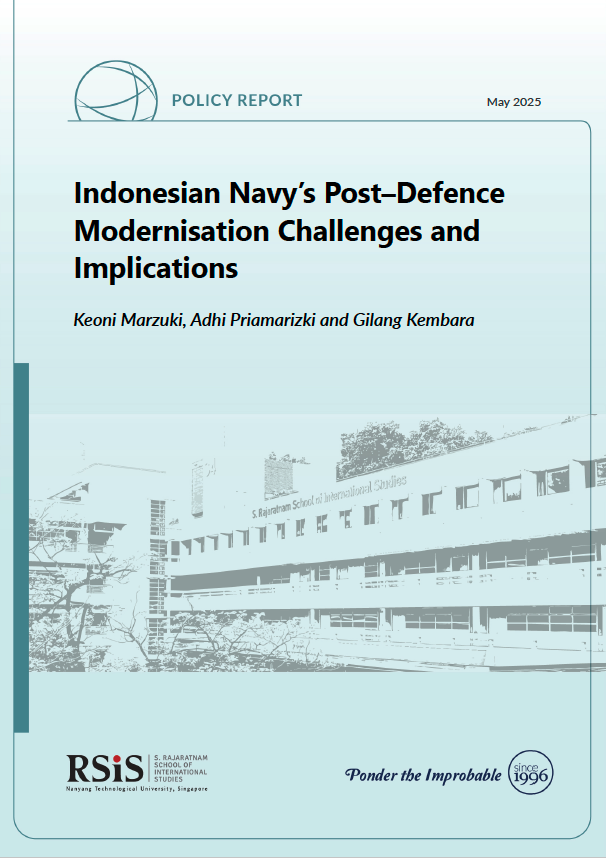30 May 2025
- RSIS
- Publication
- RSIS Publications
- Indonesian Navy’s Post–Defence Modernisation Challenges and Implications
Executive Summary
Indonesia’s naval force (TNI AL) missed a crucial opportunity to realise its “green-water navy” ambition through the Minimum Essential Force (MEF) defence modernisation programme, despite notable progress. Multiple factors, including shifting government priorities and aspirations from maritime development towards economic development, budgetary constraints, and sluggish post-pandemic recovery, have negatively affected TNI AL’s force modernisation objectives. TNI AL has consistently pursued technology transfer alongside its acquisition of surface combatants and submarines to strengthen local naval industries. While this dual approach appears strategic, it has often compelled the service to prioritise cost-effective deals over long-term strategic imperatives, potentially undermining the service’s arms modernisation progress. The persistent influence of the Indonesian armed forces’ territorial mindset, the implementation of the current Indonesian government’s ambitious national projects, and the absence of a post-MEF force structure development have emerged as the immediate challenges for Indonesia’s naval development.

Executive Summary
Indonesia’s naval force (TNI AL) missed a crucial opportunity to realise its “green-water navy” ambition through the Minimum Essential Force (MEF) defence modernisation programme, despite notable progress. Multiple factors, including shifting government priorities and aspirations from maritime development towards economic development, budgetary constraints, and sluggish post-pandemic recovery, have negatively affected TNI AL’s force modernisation objectives. TNI AL has consistently pursued technology transfer alongside its acquisition of surface combatants and submarines to strengthen local naval industries. While this dual approach appears strategic, it has often compelled the service to prioritise cost-effective deals over long-term strategic imperatives, potentially undermining the service’s arms modernisation progress. The persistent influence of the Indonesian armed forces’ territorial mindset, the implementation of the current Indonesian government’s ambitious national projects, and the absence of a post-MEF force structure development have emerged as the immediate challenges for Indonesia’s naval development.






